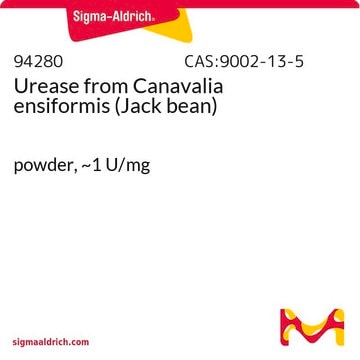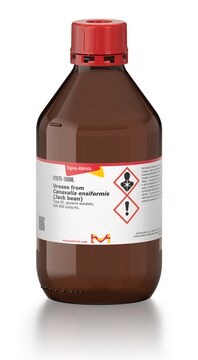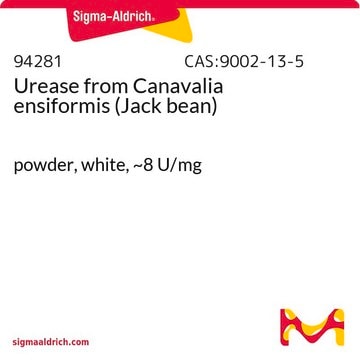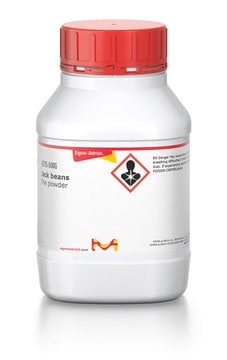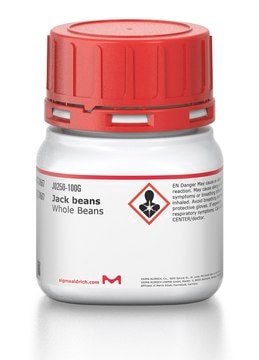U4002
Urease from Canavalia ensiformis (Jack bean)
Type IX, powder, 50,000-100,000 units/g solid
Synonym(s):
Jack bean urease, Urea amidohydrolase
About This Item
Recommended Products
type
Type IX
form
powder
specific activity
50,000-100,000 units/g solid
mol wt
~544620 Da
storage temp.
2-8°C
Looking for similar products? Visit Product Comparison Guide
General description
Composed of six subunits with total molecular weight: ~544,620
Application
Biochem/physiol Actions
Unit Definition
Signal Word
Danger
Hazard Statements
Precautionary Statements
Hazard Classifications
Eye Irrit. 2 - Resp. Sens. 1 - Skin Irrit. 2 - STOT SE 3
Target Organs
Respiratory system
Storage Class Code
11 - Combustible Solids
WGK
WGK 1
Certificates of Analysis (COA)
Search for Certificates of Analysis (COA) by entering the products Lot/Batch Number. Lot and Batch Numbers can be found on a product’s label following the words ‘Lot’ or ‘Batch’.
Already Own This Product?
Find documentation for the products that you have recently purchased in the Document Library.
Customers Also Viewed
Articles
Probiotics exhibit an inhibitory effect on pathogens, help prevent chronic intestinal inflammatory diseases or atopic syndromes, and support the immune system.
Probiotics exhibit an inhibitory effect on pathogens, help prevent chronic intestinal inflammatory diseases or atopic syndromes, and support the immune system.
Probiotics exhibit an inhibitory effect on pathogens, help prevent chronic intestinal inflammatory diseases or atopic syndromes, and support the immune system.
Probiotics exhibit an inhibitory effect on pathogens, help prevent chronic intestinal inflammatory diseases or atopic syndromes, and support the immune system.
Our team of scientists has experience in all areas of research including Life Science, Material Science, Chemical Synthesis, Chromatography, Analytical and many others.
Contact Technical Service

